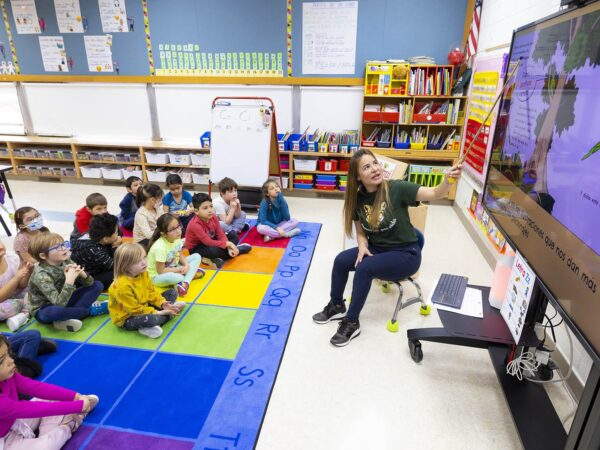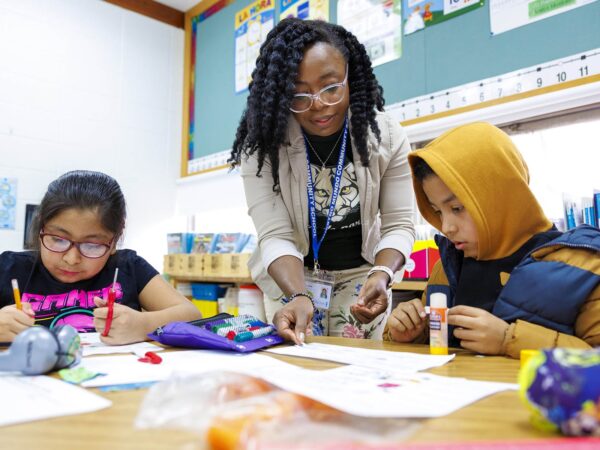Bachelor of ScienceChild LifeHenry Predolin College of Health Sciences
Help ease their pain
You’re someone who loves to help others, especially kids. Kids who can light up a room with their smile, except when they are hurting from a serious illness or injury. As a student in the Bachelor of Science in Child Life degree program, you will gain the knowledge and the experience to perform assessments of medical treatments and hospitalizations that affect children and their families. Our hands-on, industry-relevant curriculum is designed to get you out of the classroom and into the healthcare industry with rigorous preparation and real-world experience. When you earn your degree with Edgewood University, you’ll have the skills, knowledge, and professional connections to enter a clinical setting and make a positive, long-lasting impact on the lives of others.
Certified Child Life Specialists (CCLS) develop strategies and techniques that assist children and families in coping, reducing worry, and provide emotional support throughout stressful experiences. This is achieved by explaining procedures, enacting therapeutic play and self-expression activities, and serving as a compassionate advocate for the child and their family. You will have a profound impact as you take challenging healthcare situations and transform them into opportunities for healing, resilience, and smiles.
Located in Wisconsin’s capital city, Edgewood University’s location makes it an ideal choice for students pursuing this degree path. Madison, known for its expansive healthcare community, is home to several renowned hospitals including American Family Children’s Hospital – a Level I Pediatric Trauma Center and partner of Edgewood University. A vibrant and engaged community both on campus and beyond, our picturesque location is the perfect blend offering a stimulating place to live and learn and a professional network that will position you to achieve your goals.
Madison, WI
On-campus
120
Careers within Child Life
$53,970
Average annual salary for a Child Life Specialist (hospital based)
Child Life Specialists may work in a variety of settings:
- Hospitals
- Outpatient Clinics
- Rehabilitation Centers
- Specialty Clinics
- Community-Based Organizations
Accreditation
Edgewood University’s Child Life program is proud to have earned endorsement from the Association of Child Life Professionals (ACLP). This endorsement is a testament to the high standards and quality of the program’s curriculum, which is designed to provide undergraduate students with comprehensive education and hands-on training in the field of child life. By earning an ACLP endorsement, the program is recognized as a top choice for students looking to pursue a career in child life studies, providing students with a valuable advantage in the job market.
Child Life Program by the Numbers
10:1
Student to faculty ratio
100%
Job placement within 6 months after graduation
Featured Courses
Child Life 301 Introduction to Child Life
The child life profession, including theoretical and historical perspectives on child life; programming, job availability, trends affecting academic preparation; program requirements, field experiences, including practicum placements, internships and volunteer experiences; supplemental career options; interviews and presentations of program directors, child life professionals, and alumnae working in the field of child life.
Child Life 370 Psychosocial Care for Hospitalized Children and Families
This course provides introductory knowledge and skills to integrate concepts of health, nutrition, and physical fitness into the programming created by professional child life specialists. Instruction in developmentally appropriate programs for physical fitness and health promotion will build ethical understandings of personal and community health issues.
Child Life 418 Learning through Play
This course is designed to nurture play in the learning process and to appreciate each individuals’ unique style of play. Research related to play in health, naturalistic assessment learning, and work will be highlighted and methods will include experiences designed to incorporate play into work and living environments. Interactive and fosters creativity.
Student Organization
Edgewood University Child Life Association (CLA)
The Child Life Association – CLA – is a student run organization devoted to child life majors and students who have an interest in the child life field at Edgewood University. We provide opportunities for child life students to engage in activities related to the field and events throughout the community. Through the CLA we volunteer at places such as American Family Children’s Hospital and Gilda’s Club. In addition, we attend Child Life conferences, host resume workshops, and host Child Life Week on campus. Our goal is to make the Edgewood University community aware of child life, the benefits this career path provides for students, the impact a CCLS has in the lives of children and their families and provide networking opportunities for students.
Project Sunshine
Project Sunshine is a national volunteer-led program for pediatric patients and their families, bringing patients and volunteers together in hospitals through creative arts activities and other opportunities for social interaction and learning. We provide support to any child facing a medical challenge, whether that be acute, long term, behavioral, or developmental. When working in the hospital, we see children for who they are as unique individuals beyond their illness or diagnosis. We work with Child Life Specialists and other healthcare staff to create a space in the hospital environment for kids to socialize with each other and participate in fun activities that are both recreational and educational.
At our Edgewood University chapter, volunteers can participate in our “Sending Sunshine” events in which they assemble fun and interactive activities that will be sent to pediatric hospitals nationwide. These sunshine kits include developmentally appropriate materials used to spark joy, provide therapeutic value to the physical and emotional healing process, provide needed distraction, and assist hospital staff in building trust and rapport with patients.
Beat Childhood Cancer Edgewood (BCCE)
Founded by parents of children with cancer, Beat Childhood Cancer is a national organization whose mission is to drive childhood cancer research and raise awareness, making a difference in kids’ survival today. Inspired by their own children, they built a nonprofit organization with the hope of changing the story for the next family that will face a cancer diagnosis. BCCE is a student-led organization that partners with the national organization. Through a variety of fun activities such as student stress relief, build a bouquet, and penny wars, this compassionate group of difference makers brings the Edgewood University community together to raise awareness and financial support for childhood cancer research. BCCE also makes a local impact by hosting events like a book drive to support the local Children’s Hospital’s oncology floor.
Faculty Spotlights
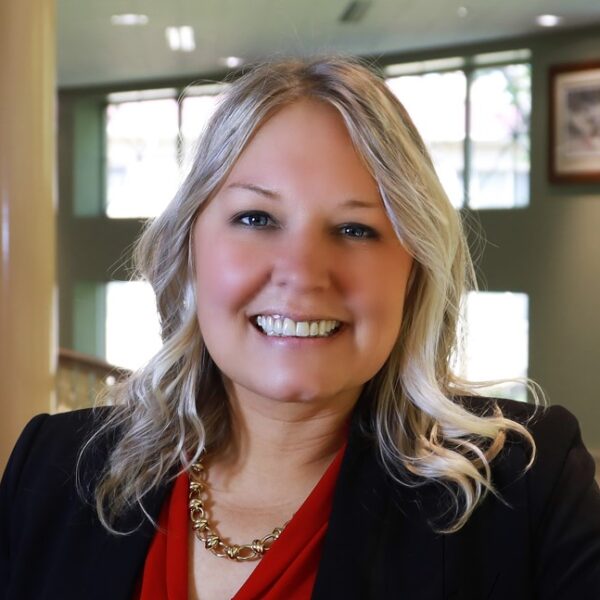
Katie Glass, EdD, CCLS
Associate Dean and Program Director, Child Life Program
KGlass@edgewood.edu
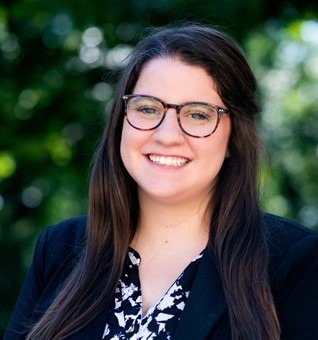
Sarah Keyes, MA, CCLS
Lecturer, Child Life Program
Skeyes@edgewood.edu
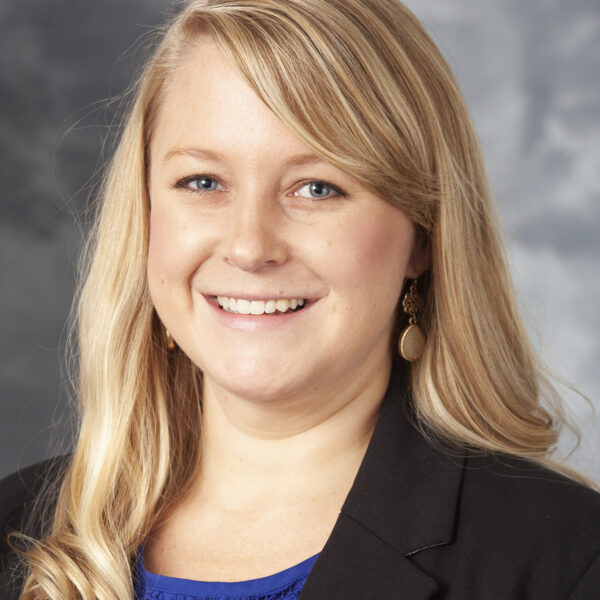
Katie Markowski, MA, CCLS
Lecturer, Child Life Program
kmarkowski@edgewood.edu
Comprehensive Support & Mentoring
Students pursuing a Child Life degree face a multitude of requirements as they navigate their educational journey towards graduation, licensure, and securing a job in their field. By limiting enrollment to ten (10) students per cohort, faculty can devote ample time providing one-on-one academic support. Our dedicated team plays a pivotal role in mentoring, facilitating professional connections, and helping students gain practical experiences. The curriculum prepares students for both the internship application process and the clinical components required of the internship. Our program diligently focuses on preparing students through hands-on learning experiences, including:
- Mock interviews
- Practicum experience in both clinical and alternative settings
- Resume workshops
- Utilization of the Simulation Lab
- Volunteer opportunities
Related Programs
-
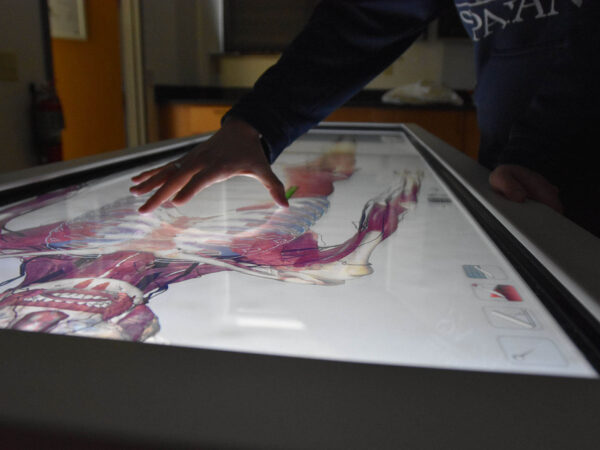
On-campus
Bachelor of Science in Health Sciences -
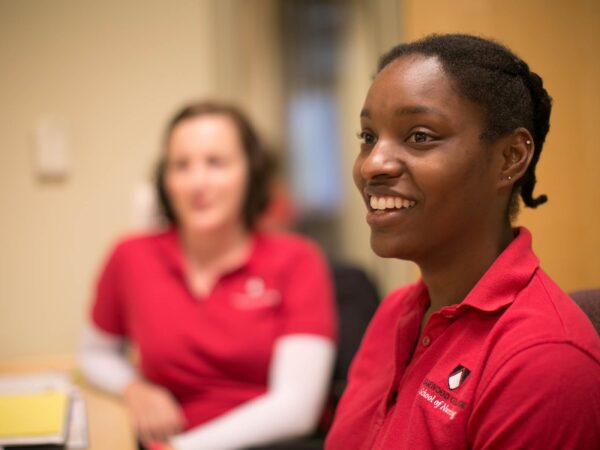
On-campus
Bachelor’s of Science in Nursing -
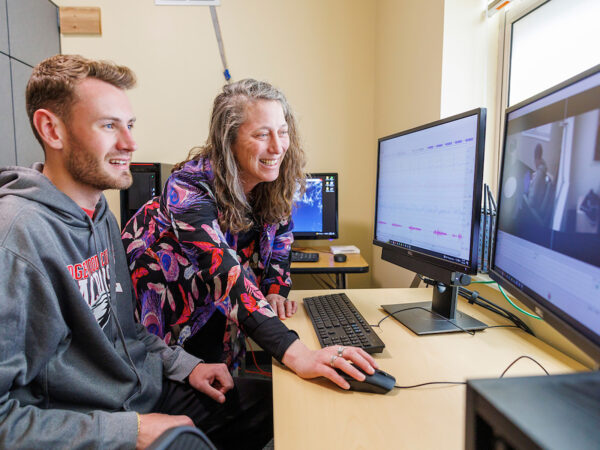
On-campus
Bachelor of Science in Psychology

